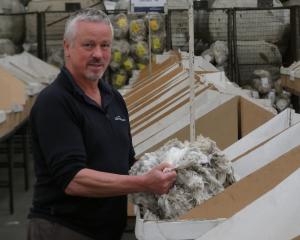

Yes. I’m off to study psychology remotely at Massey University, hoping to do a master’s and look at veterinary wellbeing.
Q. What spurred your decision to study?
Veterinary wellbeing is an area I’ve always been interested in and obviously it’s a challenging area — vets struggle in that space. I have focused on it throughout my career and I wanted to do something a bit more direct in this space.
Q. Why now?
Everyone’s got a shelf life, and I felt it was an opportunity for me to still be in the profession, but step into something else while I’m still young enough. I was thinking of stepping back and doing a research project looking at veterinary wellbeing through the business and the more I dived into it, the more I realised what I didn’t know. Coming at it from a very scientific perspective and not having any psychology background or any training in the social sciences, I thought if I’m going to do justice to this and do it properly, it’s not just going to be a six-month research project. I’m going to need to retrain and apply the skills.
Q. Is vet wellbeing an industry issue that needs to be addressed?
Oh yeah. Vets have, on average, about four times the suicide rate of their colleagues who are not vets and if you’re a younger female or an older male, the risk is even greater and that hasn’t changed in the past 20 years. I think we’ve got much more aware of it, and we’re probably better at mitigating the mental impact to some extent but I think the pressures have increased at the same time, so we’re not really seeing any fundamental change. So it’s a huge issue for the industry. We lose far too many vets and that’s the worst-case outcome, but there’s a lot of vets struggle with mental health issues. For me, it’s been a wonderful profession. It’s just been outstanding.
I have thoroughly enjoyed my time in the past 40 years, but that’s not the case for everybody. So it’s always worried me that people haven’t had the universally good experience that I’ve had. So we need to do a better job.
Q. How many years are you expecting to be studying?
Probably three or four.
Q. How do you make gains in the mental health space?
I don’t think it’s simple. That’s why I’m going back to study and I’m hoping in the next three or four years, I might have a few more answers.
Q. How are you feeling about your decision?
I’m really excited by it because it’s still part of the profession, and I’m still going to stay as a shareholder and a director in VetSouth but I’m just not going to be employed as an employee.
Q. So come February, you’ll be putting down the tools for the last time?
To be fair, I haven’t picked up the tools for a long time. I’m mostly managing people. I will do my share of on-call in the spring to help the team out, but people don’t see me on farm these days. They’ve got much better, younger ones to do the job.
Q. How are you feeling about becoming a scarfie again?
Well, I get a student pass, which is quite nice; you know, some cheap events. It’s not an easy decision. I’ve been here for almost 30 years and it’s kind of been my life. But at the same time, I don’t feel as if I’m really leaving. I feel as if I’m just embarking on a new part of my career and I’ll still be a shareholder and director of VetSouth, something I hold very dear, and I’ll stay close to the team. I think it’s obviously going to be quite different. I’ll miss the people every day and I’ll miss the clients, no question about that, but you’ve got to know when your time’s up and make way for the younger ones. We’ve got some fantastic young ones coming through and they need every opportunity to progress.














